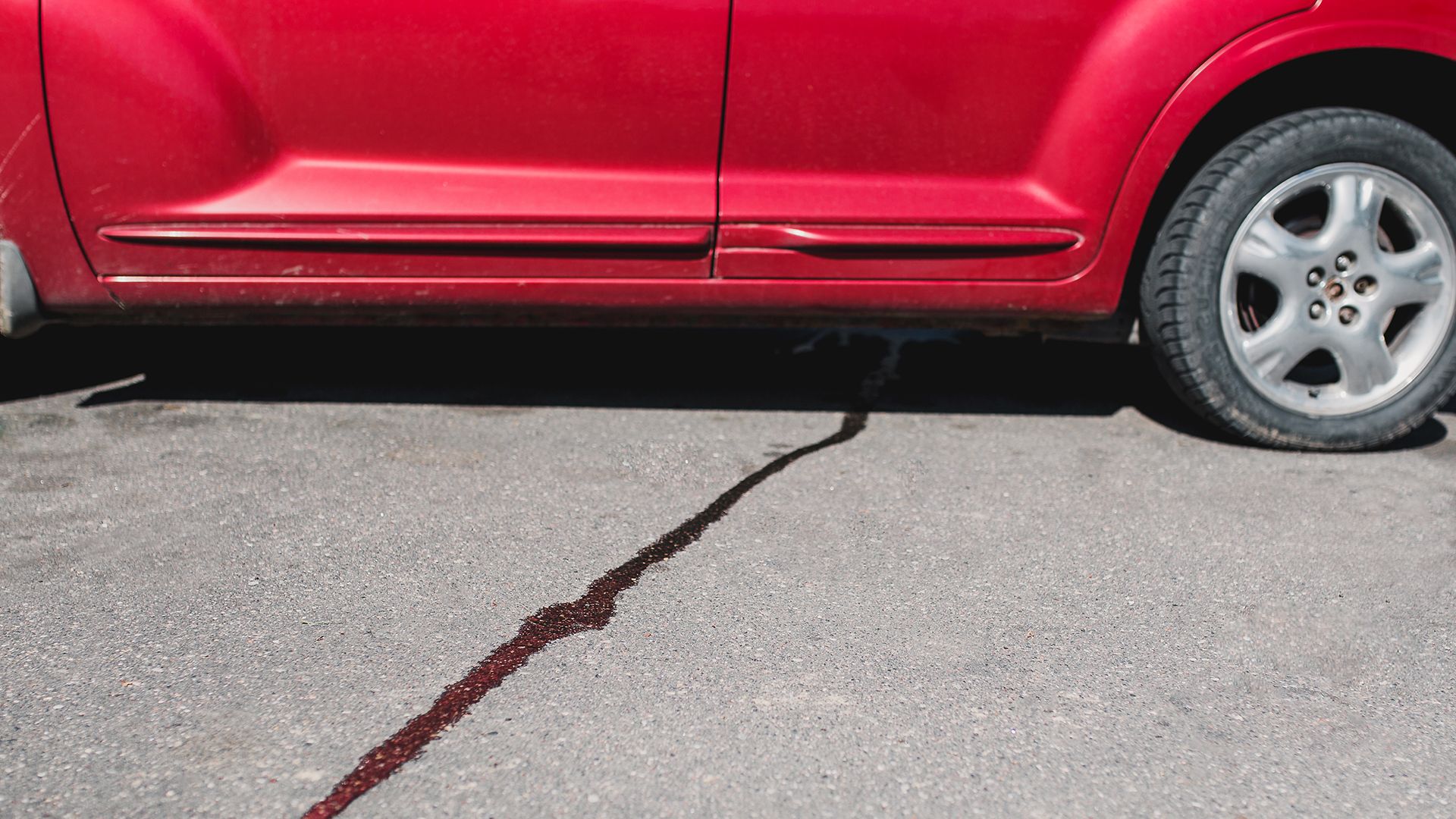Have you ever gone to fill up your engine at the gas station only for a dribble of gas to fall on your shoe? Spilled gas on your shoe or car tends to leave a strong smell, but eventually, it will dissipate as you get about your day.
When you smell a persistent and lingering gas smell, however, this is an indication that you are dealing with a much more significant issue. Gasoline is a toxic and flammable compound, and inhaling gas vapors is harmful to your health.
The smell of gas in your car can often indicate a gas leak somewhere, but there are also a few other possible reasons. Here are the most common reasons why your car might smell like gas.
1. Fuel tank leak
The smell of gasoline can be a strong indicator that there is a gas leak in the fuel tank. A puddle of rainbow-colored gas pooling beneath the car or a noticeable drop in the gas gauge can alert you to this issue. A fuel leak can result from old age or from a foreign object puncturing the fuel tank, but, regardless of the cause, this needs to be an immediate fix.
2. Cracks in the fuel lines
Fuel pumps send fuel through various hoses to the fuel injection rail which are placed on top of the engine. If gas is oozing onto the ground as you drive, this may indicate that the fuel line is leaking. A leaking fuel line causes a drop in fuel pressure, which can compromise the operation of the entire fuel system. Rubber fuel hoses can easily be damaged by debris and foreign objects or by age. Without replacing the fuel line, the engine will begin to misfire and stall.
3. Leaking fuel injectors
A fuel injector is the part of the fuel delivery system, and it receives and sprays gasoline into the engine. Each injector adds a precise amount of fuel to the engine’s cylinders. A fuel injector can leak due to cracks in the injector itself, or due to the aging of its rubber O-ring seals. When a fuel injector leaks externally, gasoline will collect outside the engine and burn as the engine heats up. This indicates that it is time to replace the fuel injector or O-rings.
4. Spark plug issues
Did you know that spark plugs can also lead to a strong gas smell? Spark plugs are attached to your vehicle’s combustion chamber and are what delivers the spark that ignites the air and fuel mixture that allows your engine to produce power. When spark plugs are not tightened correctly to the right torque or become worn and cracked due to age, some fumes from the combustion process may escape. These fumes escape into the engine compartment next to the ventilation system to produce that nauseating gas smell. Check on the placement and condition of your spark plugs and the washers that seal your spark plugs to address this issue.
5. Problems with the Fuel Pressure Regulator
The fuel pressure regulator maintains the fuel pressure in the electronic fuel injection system. When the fuel pressure regulator malfunctions, it will interfere with the fuel mixture so that the mixture is either too thick or too thin. This will cause the engine to burn gas excessively and cause the engine to stall. In this case, gas fumes can leak from the gas lines, out of the car’s exhaust, or through the ventilation system. To determine if your fuel pressure regulator is failing, keep a close eye on the overall power and fuel efficiency of your vehicle.
6. Evaporative emission control system failures
Fuel vapors can pollute the air. The evaporative emission control system (EVAP) is designed to prevent gas vapors from escaping from the fuel tank and fuel system into the atmosphere by capturing and cleaning those harmful vapors in a charcoal canister before sending them to the engine to be burned up. When this system springs a leak due a cracked canister or shortened valve circuit, you may smell gasoline as you drive. In all likeliness, your check engine light will turn on and alert you to this issue.
7. Concerns with exhaust fumes
Smelling gas while you drive may indicate an exhaust leak. Unburned gasoline that escapes through the tailpipe as fumes can indicate that all the gas is not being burned up during combustion as it should be. This is an issue because it means that your engine is probably using more fuel and that your engine is producing less power than it should. This means your engine needs to be serviced.
8. Trouble with the gas cap
A gas cap seals the gas tank so no vapors can escape and so that proper pressure is maintained in the system. If loose, damaged, cracked, or missing, a faulty gas cap can allow a strong gasoline smell to escape, while also causing the car to consume more gas than usual. A loose gas cap is the easiest fix on this list: you just simply need to screw it in tighter. A replacement for the gas cap would also be an easier fix as they are typically between $10 and $20.
There may be a variety of causes for why your car may smell like gasoline. Sometimes the answer is as easy as you accidently splashed gasoline onto your car while filling it up. Other times, if you smell a persistent gas odor, it is important to diagnose the issue immediately. It is typically not safe to drive when a gas smell persists. For peace of mind, take your car to a professional as soon as possible to ensure your safety on the road.
